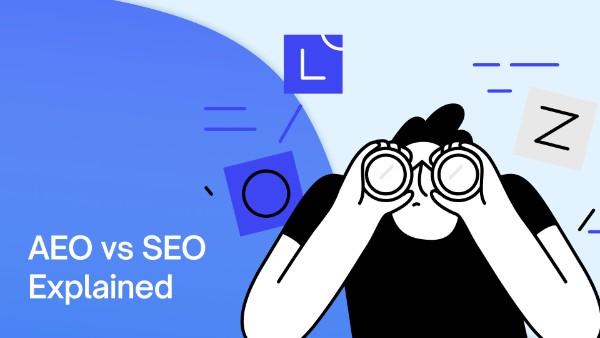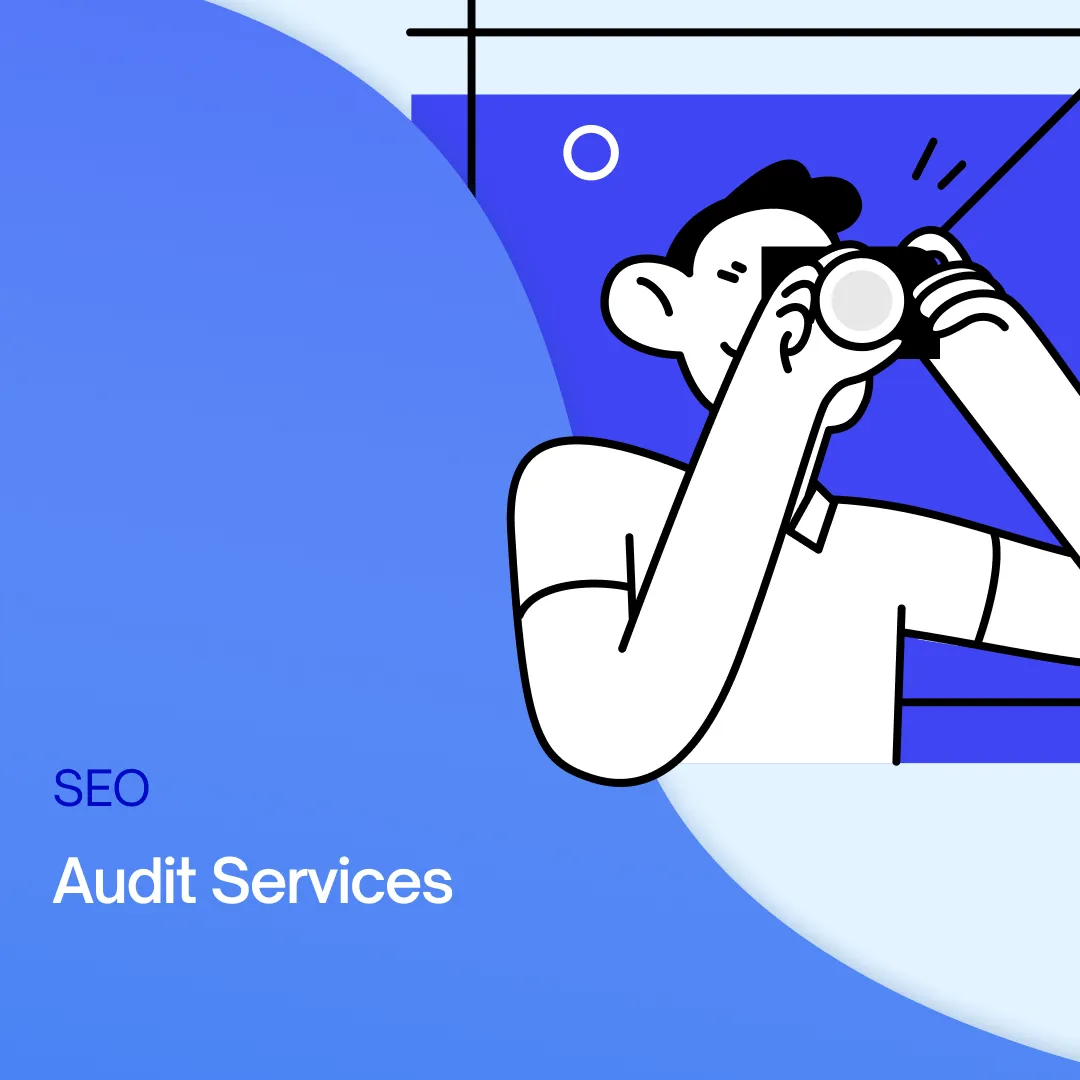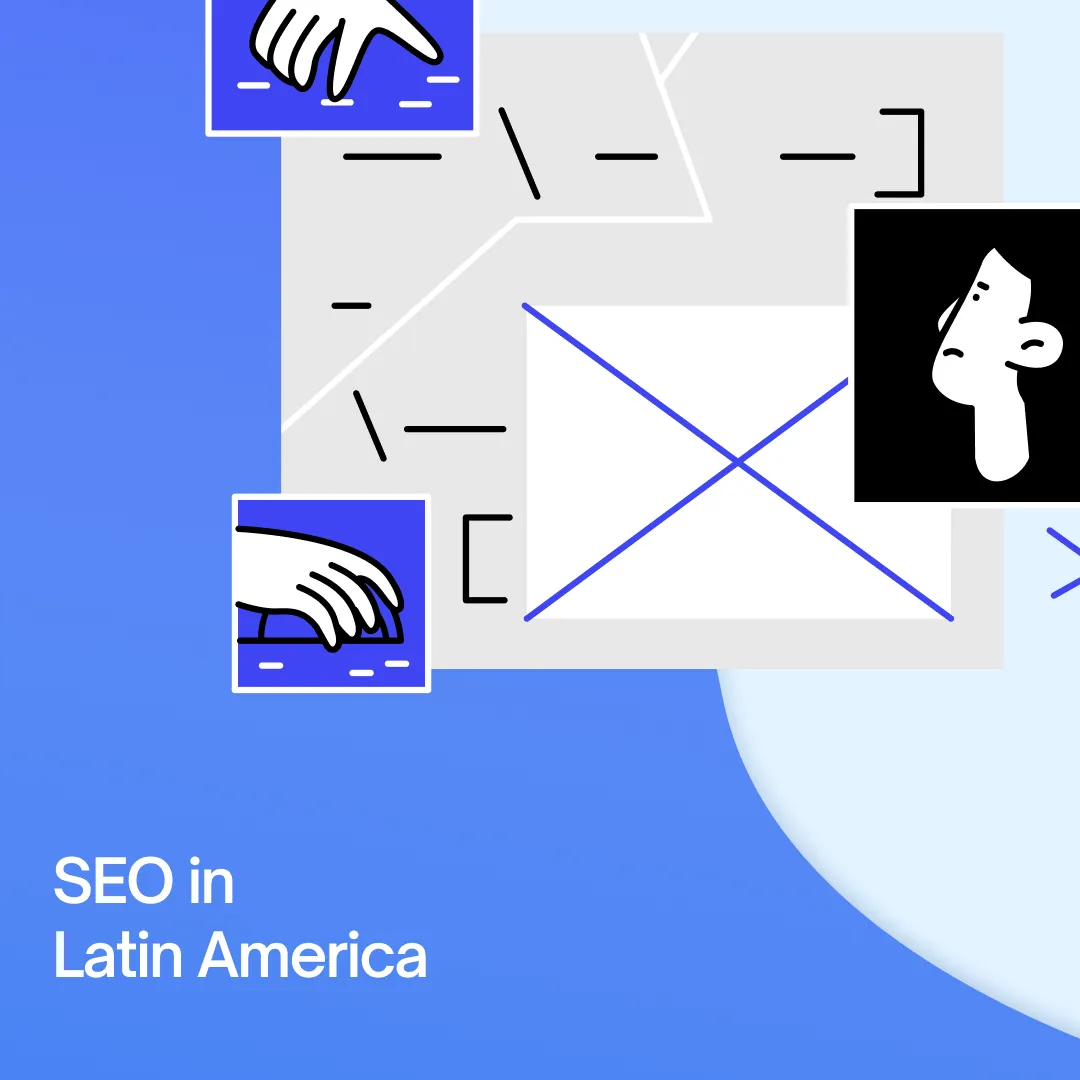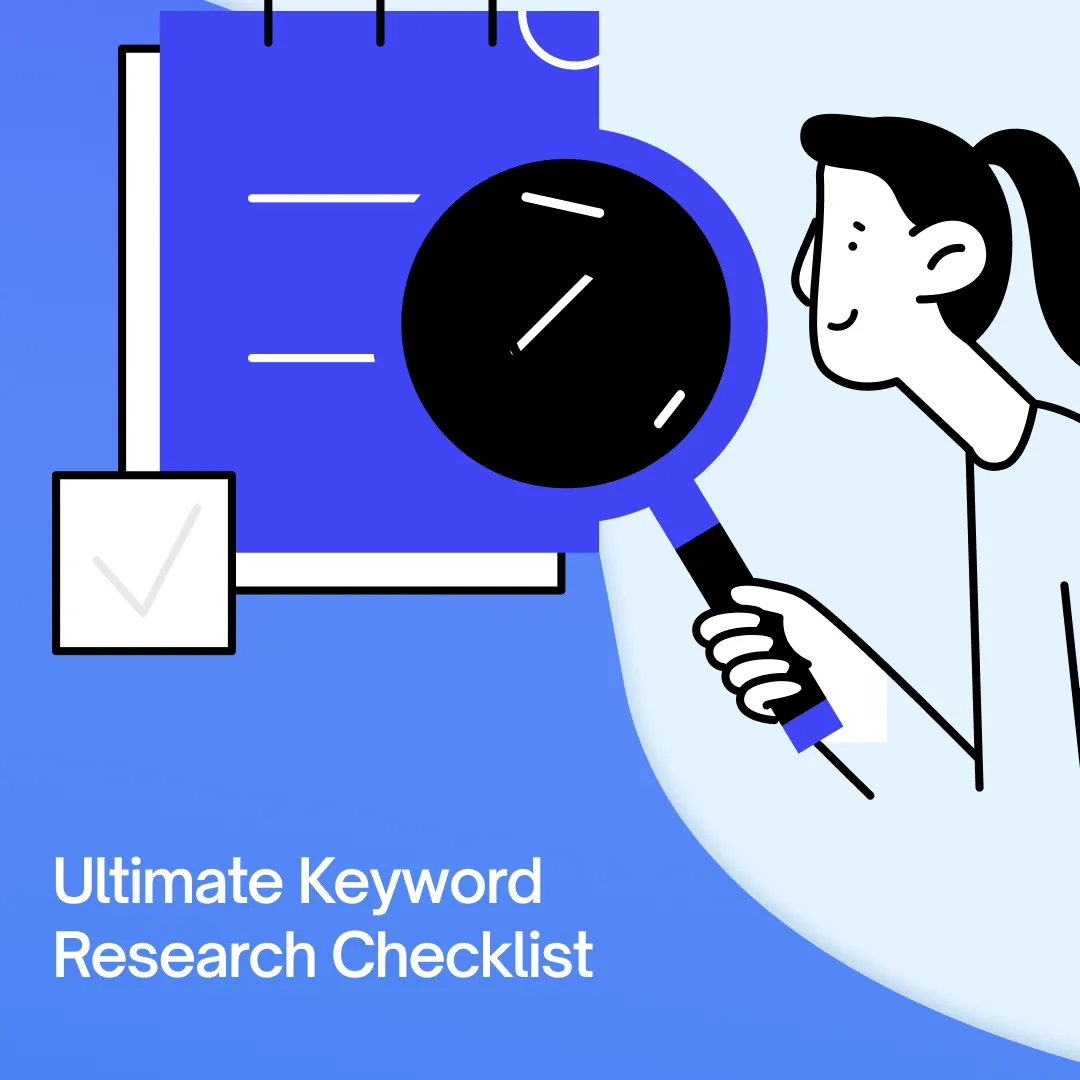Answer Engine Optimization (AEO) is being hailed as the next big thing in digital marketing. It definitely is. But there’s also a misconception that it’s bringing the end of search engine optimization (SEO).
The debate over investing in AEO vs SEO matters now more than ever. Optimizing for search today means serving up direct answers instead of just ranking for keywords. In fact, in a 2024 poll, 15 million adults in the US reported using Generative Artificial Intelligence (AI) as their primary tool for online search.
If you’re unsure how to use that to your advantage, you’re on the right page.
In this guide, we’ll deep dive into AEO vs. SEO, understanding the importance of each, how they differ, and bust some myths along the way.
TL;DR
The rise of AI-powered tools like ChatGPT, Google SGE, and Perplexity is reshaping how people search for information and products.
Traditional SEO (focused on SERP rankings and clicks) is still important, but it must be complemented with AEO (Answer Engine Optimization). This strategy is designed to get your content featured directly in AI-generated answers, voice search, and chatbot results.
- Voice and AI search are growing fast: 8.4 billion voice assistants in use; AI Overviews now appear in 13% of Google queries.
- AEO vs SEO: SEO drives clicks; AEO delivers direct answers. AEO relies more on structured content and schema markup than keywords and backlinks.
- They’re different but connected: Top SEO content gets cited in AI answers frequently. A hybrid AEO + SEO strategy boosts visibility, authority, and conversions.
- The payoff is real: AEO can increase conversions and traffic. SEO still delivers 25% higher ROI than PPC and remains the top organic traffic driver.
SEO isn’t dead. AEO just expands the playing field.
Smart brands are doing both. And Bluethings can help you conquer both worlds.
AEO vs SEO: Why This Debate Matters in 2025
AI, particularly Gen AI, has impacted nearly every aspect of the Internet, including how people search. With the rise of AI-powered answer engines, such as ChatGPT, Google Search Generative Experience (SGE), and Perplexity AI, businesses can no longer rely solely on traditional SEO for search visibility and brand presence.
The proof is in the numbers.
In 2025, 20.5% of global users actively use voice search, with 8.4 billion voice assistants in use, according to Demand Sage. That’s more than the entire global population. Voice search is directly linked to AEO.
Bain and Company’s research found that 80% of users rely on ‘zero-click’ results, meaning users get direct answers without visiting websites. That has resulted in organic web traffic taking a hit, by as much as 15-25%.

Click-through rates (CTR) for organic top-ranking results on search engine result pages (SERP) are lower when AI Overviews are present, according to two different studies. A study by Ahrefs reported a 34.5% drop in CTR. This is despite Google stating that content cited in AI Overviews results in higher-quality clicks.
Naturally, this has sparked the debate on whether AEO is the next SEO.
All of this means digital marketers, CMOs, and content strategists must prepare for a search ecosystem where machine learning, natural language processing, and structured data drive much of user engagement.
What Is AEO?
Answer Engine Optimization (AEO) is the process of optimizing websites and content so “answer engines” like ChatGPT, Google Gemini, Perplexity AI, or Microsoft Copilot can extract and present your content as a direct answer to search queries.
SEO prioritizes rankings on SERPs. AEO focuses on concise, structured answers for voice search, AI chatbots, and conversational search.
AEO is also referred to as Generative Engine Optimization (GEO), which means optimizing for generative AI-driven tools. It’s sometimes seen as a more encompassing term, but essentially, both AEO and GEO present the same idea.
What Is SEO?
Search engine optimization (SEO) refers to optimizing your website and content so that it ranks prominently on SERPs, such as Google, Bing, and Yahoo. SEO concentrates on driving search visibility through relevance, authority, and technical precision.
Organic search remains the primary traffic source, accounting for approximately 53% of all website traffic in 2024.
SEO uses a mix of on-page, off-page, and technical SEO strategies. It relies on relevant keywords and search intent, with other variables, such as backlinks and domain authority, also at play besides the actual written content.
Discover the best SEO agencies for your business!
AEO vs. SEO: Differences
A study by Surfer found that AI-generated overviews on Google used more than half of the sources that were in the top 10 ranking pages. That goes to show there are parallels between AEO and SEO. However, they can be markedly different in practice.
Let’s look at those differences briefly before discussing them in more detail:

AEO vs. SEO: Objectives
While both AEO and SEO aim to improve search visibility, their goals diverge.
SEO is geared toward elevating your website’s ranking on SERPs, primarily to drive clicks and traffic. In contrast, AEO wants your brand’s content to appear directly in answer boxes and featured snippets. The aim is also to feature it as a source in AI-powered answer engines.
These answers don’t usually result in clicks. So, AEO’s ultimate goal isn’t to drive visitors to your website like you would with SEO.
AEO vs. SEO: Content Type and Format
SEO typically involves in-depth articles, blog posts, and guides. These are all formatted with keywords, meta descriptions, and structured headings. It’s mostly focused on written content, with long-tail keywords and topical relevance.
AEO, however, thrives on concise answers, FAQs, and structured data. These are short, direct replies formatted for voice search assistants and chatbots.
For example, instead of long sections, you might create a list of questions with brief answers that people might search for. In addition to content format, schema markup (HTML code that helps search engines better understand and index web pages) is also incredibly important for AEO. It will ensure that each FAQ is properly tagged to boost rich snippets in search results and conversational interfaces, such as Google Assistant.
Not sure if you have schema markup? You can use this free tool, and it’ll show you all the errors you need to tackle:

And if you need a good example of AEO optimization, just search for any term and see how it appears in AI overviews.
That’s the same kind of information structuring you’ll need to use in your own content.

P.S. It’s possible to create content optimized for both traditional SERPs and AI-generated answers, as we’ll explore later.
AEO vs. SEO: Optimization Techniques
SEO has very specific optimization techniques that specialists in the field have mastered over the years (even though SEO practices have to keep up with changing algorithms). With SEO, efforts focus on:
- Strategic keyword research
- Technical SEO (for example, site speed and crawlability)
- Backlink building (inbound links from quality websites)
- Content optimization (with keywords, links, images/videos, quotes, etc.).
AEO, on the other hand, adds layers, including:
- Rich schema
- Conversational phrasing
- Natural language tuned for LLMs and natural language processing models.
Yes, those things can also be good for SEO. But the reverse of the coin isn’t necessarily true. So with AEO, traditional SEO tactics aren’t that critical or effective.
In fact, recent research has found that ranking factors for LLMs differ slightly from those for traditional search engine rankings. Domain authority, keyword density, backlinks, or traffic didn’t have much effect on content getting picked by an LLM like ChatGPT or Perplexity.
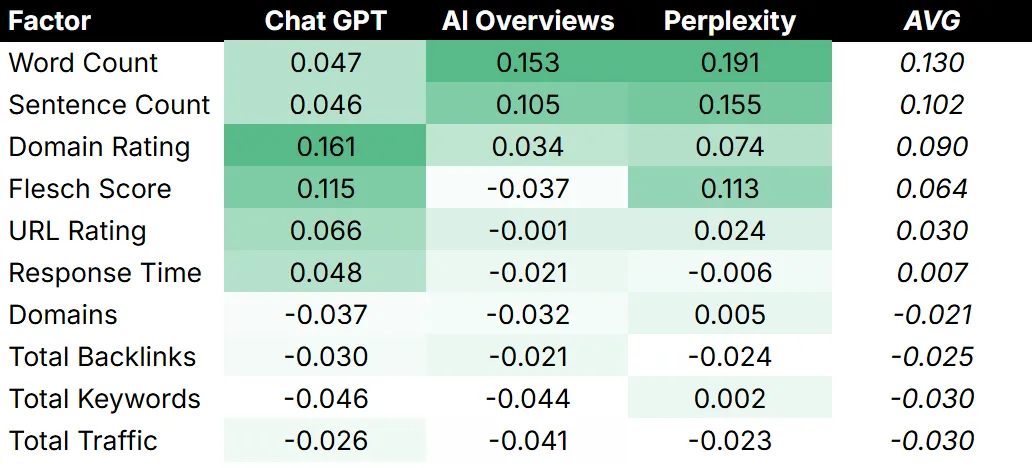
AEO vs. SEO: Target Audience and Behaviors
SEO, for the most part, targets users on search engine SERPs like Bing, Google, and Yahoo, where they’re comparing pages and reviewing content. AEO targets users looking for rapid answers via voice-operated smart assistants (Amazon’s Alexa or Apple’s Siri) or via AI chatbots on Microsoft Copilot and Perplexity.
AEO, in essence, caters to an audience looking for fast information, like finding a local business or the best product for a specific need. SEO remains better for deeper, intent-driven searches, such as assessing those products.
There’s also a marked difference between the user behavior that the two cater to. AEO is for conversational voice or chat-based searches that are typically properly phrased questions. This emphasis on user intent is crucial, as AEO captures the conversational tone of modern search queries.
See the difference in results in Google search when the search term is ‘What is the best vacuum cleaner for pet hair?’ vs when it’s ‘best vacuum cleaner for pet hair.’

In this first case, people are clearly looking for a fast answer, and that’s why AI overviews step in. But writing the search query differently implies people want a more nuanced approach. That’s why the first result to pop up is a more comprehensive review:

Ideally, you’d want to cater to both types of queries to improve your chances of click-throughs and conversion.
AEO Benefits
With zero-click searches in the mix, you might think AEO may not be worth the effort. However, with so many people relying on those AI overviews and chatbot results, it’s not something you can leave on the table.
AEO has very real, tangible benefits:
- Potentially high ROI: Forbes highlights that LLM-sourced traffic converts nearly 9× more than traditional organic clicks. Engagement and conversion boosts can be as high as 40%, with more precise answers and improved user experience. That’s likely because many of these searches are coming from warm users who are ready to convert.
- Good for authority: When your content appears in featured snippets, knowledge panels, or AI summaries, users associate your brand with expertise, even without clicking. That recognition boosts trust, much like how ranking among the top results on SERP with good SEO does.
- AEO surfaces hidden traffic: 15–25% of AI-driven visits go untracked by conventional SEO tools. However, with dedicated AEO tools designed to track AI-directed traffic, you can gain a more accurate picture of audience engagement.
- Relatively more straightforward: Compared with SEO, AEO may be considered simpler. While SEO requires a multi-pronged approach with on-page, off-page, and technical optimizations, AEO is more about the content and its structure. It’s still somewhat nascent, so things could change going forward.
SEO Benefits
Even in an AI-dominated search engine space, SEO remains a powerhouse in digital marketing strategy. And here’s why it will continue to be important for brand discovery and sales/conversions:
- One of the highest ROIs: 49% of marketers say SEO delivers the highest ROI among marketing channels. When compared to paid alternatives, organic continues to outperform. SEO offers roughly 25% higher ROI than PPC (pay-per-click).
- Great for lead generation: SEO is one of the most impactful ways to get quality leads. Organic leads have 14.6% conversion rates compared to just 1.7% from outbound leads. That’s all the more important for B2B startup brands.
- Maintains click dominance: The #1 search result on Google garners about 27–28% of clicks. This is why excelling at technical SEO, rich snippets, and high-quality backlinks matters.
- Continuous trust building: Another benefit of SEO is trust. Over 72% of top-performing pages are three years old, showing how sustained efforts and rich content establish domain authority over time. With nearly 99% of searchers staying on the first page, ranking well is still the way to get discovered.
Finally, platforms like Google Search Console, SEMrush, and Ahrefs have granular tracking of search queries, impressions, CTR, and backlink profiles. That can allow you to optimize performance continuously and make data-driven adjustments in your content strategy.
Explore Ecommerce SEO Case Studies!
Is AEO Replacing SEO?
No, AEO isn’t replacing SEO. It’s becoming an extension of SEO and giving way to a more hybrid strategy.
In 2025, a Semrush study showed that AI Overviews appear in about 13% of Google queries as of March, jumping from 6.5% in January. This signals that SERPs are transforming, but not disappearing.
It’s true that AI’s role in shaping search visibility is growing, but it does so alongside, not in place of, classic SERP ranking.
Also, AI in SERPs is still somewhat new, and search engines are continuously adopting it. So, to say that ‘SEO is dead’ is premature and simply wrong. For instance, Semrush data shows that while zero-click searches exist, zero-click rates slightly declined (38.1% to 36.2%) even as AI Overviews increased.
That’s a clear indication that AI’s impact is only changing SEO, not removing it from the picture.
All that said, AEO can’t be ignored either. People are increasingly searching for information, brands, and products via voice search and conversational queries. And that makes up a considerable chunk of the overall searches. Any smart brand and marketer would want to tap that portion for, at least, visibility and authority, if not conversion.
AEO excels at targeting informational user intent, especially long-tail, conversational queries. SEO remains vital for transactional and brand-focused traffic.
“AEO represents the next phase of content strategy–one that anticipates the needs of users (and machines) by offering clear, structured, authoritative answers. If you’re still thinking in terms of keywords and backlinks alone, it’s time to rethink your strategy,” says David Shay of Stone Soup Communication.
Integrating AEO with SEO
The best strategy going forward is combining AEO and SEO. The good news is that if you’re already doing SEO, you have your bases covered for AEO. Much of the research that goes into SEO will also inform AEO (what people are searching for, the terms they’re using, and the competitiveness of certain keywords).
As we mentioned earlier, Google turns to top-ranking pages, in many cases, to build the AI overviews and even cites them, should a person choose to verify the source of the information. That makes SEO crucial for AEO as well.
A hybrid approach can yield 14% more CTR than SEO alone. Similarly, brands that integrated AEO with SEO saw a 47% increase in organic traffic.
It’s clear that this integration is critical for businesses that want to dominate SERPs, one way or another.
Start with your SEO foundation: keyword research, domain authority, and technical SEO. Then layer AEO by identifying high-intent user queries (using tools like Ahrefs, SEMrush, or AnswerThePublic).
Structure concise answer snippets and implement schema markup (FAQ, How-To). This hybrid approach lets you “own” both traditional search visibility and AI-driven answer engine exposure.
Pro Tip: When auditing existing articles, identify your top-performing SEO content and retrofit it for AEO by:
- Adding “What is…?” or “How to…?” subheadings
- Supplementing with schema markup via tools like Schema App
- Keeping answers under 160 characters to increase AI-readability.
Finally, measure outcomes across both worlds. Track traditional metrics (organic traffic, rankings, CTR via Google Search Console) and overall SEO ROI alongside AI-specific KPIs (snippet appearances, AI citations, visibility in ChatGPT or Bing Copilot).
Win AEO + SEO with Bluethings
AEO doesn’t make SEO obsolete. In fact, it amplifies SEO. And you need both.
As SEO strengthens your site’s authority, rankings, and traffic, AEO ensures your content surfaces in direct answers, AI summaries, and voice search interfaces.
Both SEO and AEO require deep analysis, research, content creation, and continuous optimization efforts, not to mention an extensive tech stack. Choosing a professional SEO and AEO agency can be a smart, cost-effective decision, given the complexity AEO now brings.
Bluethings is exactly the solution modern brands need for their hybrid SEO + AEO strategy. With the combined experience of decades amongst the team, Bluethings has already mastered SEO and is at the forefront of AEO.
We started AEO for our existing SEO clients, even before it became mainstream. We modified existing content and pivoted future content strategy for AI overviews and excerpts. That’s precisely why our clients continue to dominate SERPs with high rankings and citations in Gen AI content.
Get in touch today and let’s talk AEO and SEO!
FAQs
Is SEO dead after AI?
No, SEO is not dead, but it's evolving. While some headlines sensationalize the claim that "SEO Is Dead," experts agree that SEO is transforming, not disappearing. SEO remains a very profitable channel for driving traffic and sales. In fact, SEO serves as the foundation of AEO, so it’s still crucial for visibility and authority.
What is GEO?
Generative Engine Optimization (GEO) focuses on optimizing content to be cited and used within AI-generated summaries from tools like ChatGPT, Google Gemini, and Perplexity. It’s a term sometimes used interchangeably with AEO.
How to do SEO for ChatGPT?
You can optimize your content for ChatGPT search by applying classic search engine optimization alongside AI-friendly formats. Start with strong SEO foundations, keyword-optimized titles, meta tags, and backlinks. Then enhance content with conversational Q&A sections, structured schema markup, and clear entity references.
Is AEO essential now?
Yes, AEO is essential in the Gen AI age. One in ten U.S. internet users initiates searches with generative AI, and 54% of queries already return an AI overview. Without AEO, brands risk losing visibility to zero-click searches and AI-driven natural language processing platforms. AEO can help capture conversational text and voice searches and build brand authority.
What is more challenging, AEO or SEO?
AEO and SEO present unique challenges. SEO requires ongoing investment in backlink building, keyword optimization, technical SEO, and monitoring domain authority. AEO, by contrast, demands precision: crafting concise answers, implementing exact schema markup, and tuning content for voice search assistants and LLM interpretation.
With a professional agency like Bluethings, brands can master both SEO and AEO to boost their online presence and capitalize on the returns from organic traffic.

